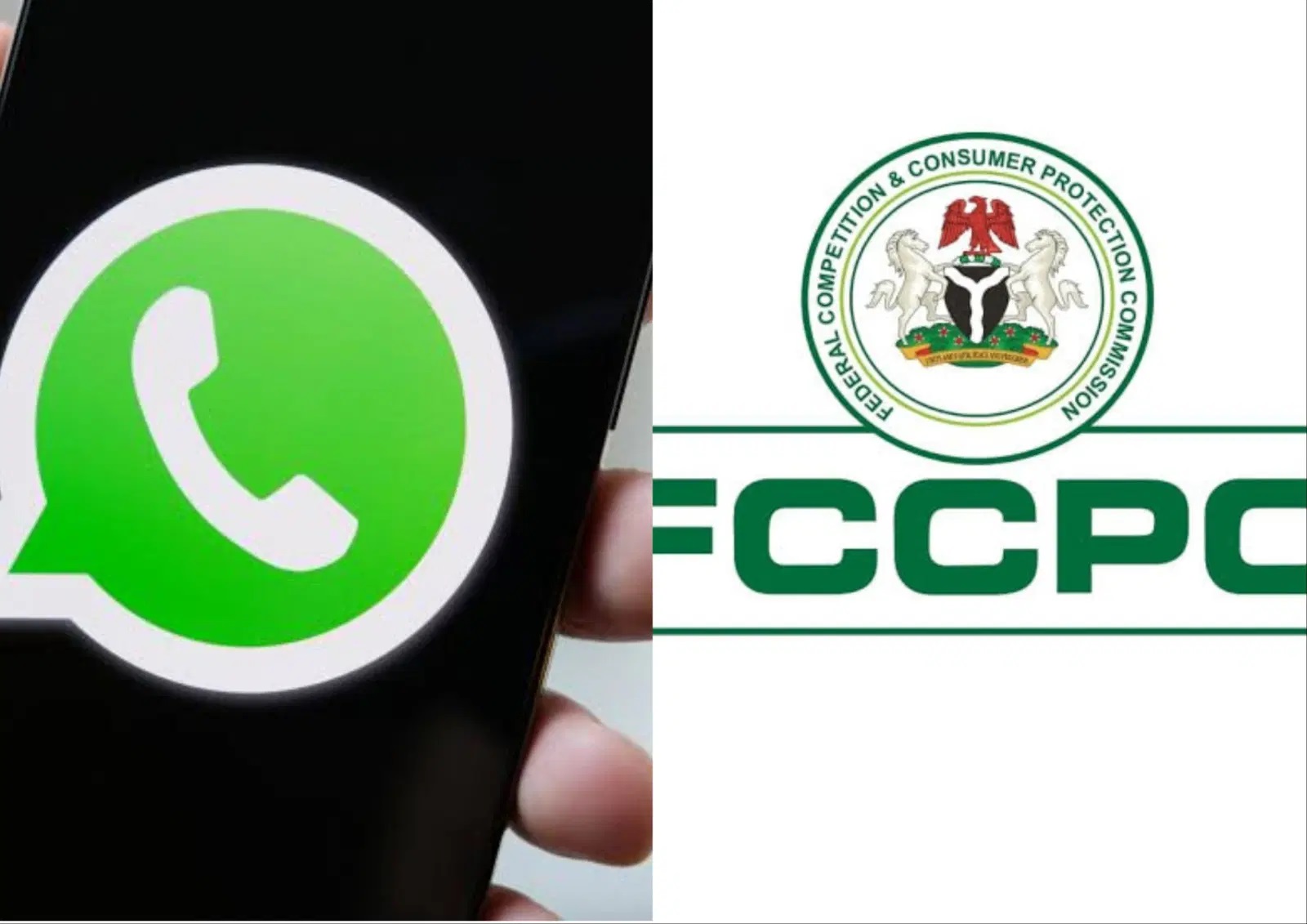Technology
How to Use WhatsApp Privacy Settings for Maximum Control Over Your Information

Privacy-related concerns are among the serious issues in this digital age, necessarily in the use of WhatsApp or other instant messaging platforms. As a matter of fact, WhatsApp is one of the most downloaded message apps in the globe. It allows the user of this highly downloaded app to have several privacy features while keeping information from contacts within. The following tutorial pages will show how WhatsApp’s privacy settings can be used to provide it with full control over one’s personal information so that you can converse with your mind at ease.
Why WhatsApp Privacy Matters
That has never been more important than it is today, when incidents of cyberattacks and breaches of concerns continue to increase. WhatsApp is end-to-end encrypted out of the box, meaning that only the sender and recipient can read messages. But WhatsApp lets you adjust privacy settings that control who can see your activity and details about your profile.
By managing these settings, you can:
- Protect your personal data from prying eyes.
- Prevent unauthorized access to your profile and messages.
- Avoid being added to unwanted groups that expose your phone number and information.
In short, controlling your privacy on WhatsApp ensures your conversations and personal data stay protected.
Understanding WhatsApp Privacy Settings
WhatsApp also makes different privacy settings available to be enabled so that the amount of your personal information that is given out can be controlled. You open the app, go into Settings, then Account, and finally select Privacy. The following are the main WhatsApp features:
However, it’s worth noting that some users opt for third-party apps like WhatsApp GB to gain access to additional privacy features not available in the official app. WhatsApp GB or GBWA offers enhanced privacy controls, such as hiding your online status, blue ticks, and even typing indicators, without limiting your ability to see others’.
Last Seen and Online Status
Your “Last Seen” timestamp shows the last time you were active on WhatsApp. Full control over this feature at any time is important regarding questions of privacy.
- Who can see it: You can decide whether to share the Last Seen status with everyone, only your contacts, or even no one at all.
- Impact: If any person hides their Last Seen status, they will no longer be able to see others’ status.
Profile Photo Visibility
The profile picture is very often the first thing with which one interacts when using WhatsApp; thus, being able to control who can see it or not may be important for privacy.
- Who can see it: Choose whether everyone can see your profile photo, only your contacts can, or no one can.
- Why it matters: Don’t expose your profile picture to strangers or contacts you may not be able to trust. Limiting the visibility to close friends and family helps avoid this situation.
About Info Privacy
The “About” section on WhatsApp is where you share a brief status or description about yourself. Although it might seem trivial, this information can reveal a lot about you if not managed properly.
- Who can see it: Control whether your About information is visible to everyone, only your contacts, or no one.
- Why it’s important: Sensitive or personal information in the About section should be limited to those you trust.
Status Updates Privacy
WhatsApp Status Updates Like many social media stories, through WhatsApp status updates, you can post text photos and videos for as long as 24 hours. As they are not permanent, they still need to beLng given significant privacy control.
- Who can see it: The visibility option will give you a choice between making your status updates visible for all of your contacts, selected ones, or only one specific group.
- Why it is important: A status update contains personal content and should therefore only be shared with trusted contacts.
Controlling Group Privacy on WhatsApp
Group chats can sometimes be overwhelming, especially when added without your consent. WhatsApp gives you control over who can add you to groups.
Who Can Add You to Groups
This feature allows you to decide who can add you to WhatsApp groups, preventing strangers or unknown contacts from adding you.
- Options: Set it so only your contacts or select contacts can add you to groups.
- Benefit: Reducing unwanted group invites not only protects your privacy but also limits who can see your phone number and other details shared in groups.
Managing Group Info and Participation
When you are in a group, it is time to manage your participation. You will be able to view the phone number of the group members, and at times, other information about the member, depending on the set permissions within the group.
- Visibility control: Limit your visibility in groups by choosing not to share any details and by leaving/muting those groups where you’re uncomfortable.
- Personal info: Be mindful about what you share in group chats to protect your privacy.
Blocking and Reporting Contacts for Enhanced Privacy
Arguably, one of the most effective ways to be in control of your WhatsApp interactions is through blocking. This implies keeping unwanted contacts from messaging you, viewing your profile photo, or assessing your status.
How to Block Contacts
Blocking someone on WhatsApp is simple and highly effective.
- Steps: Go to the contact’s chat, tap their name, and select “Block.”
- Impact: Once blocked, they can no longer send you messages or see your profile photo or Last Seen.
Reporting Suspicious Contacts
You can report unwanted or suspicious messages to WhatsApp.
- When to report: Spam, harassment, or any other abusive messages.
- What happens: WhatsApp will investigate this report then take necessary action if needed, thus helping one to keep a safe chatting environment.
Two-Step Verification for Added Security
Two-step verification adds an extra layer of security to your WhatsApp account by requiring a PIN whenever you register your phone number.
Enabling Two-Step Verification
Enabling two-step verification is easy, and it’s a surefire way to ensure only you can register your phone number with WhatsApp.
- steps: Go to WhatsApp settings, find something related to data sharing there, and opt out of it.
- Why it matters: By limiting any data-sharing at all, you retain a larger level of control over your personal information and are constraining focused advertisements through Facebook.
Managing Data Sharing Permissions with WhatsApp and Facebook
WhatsApp, owned by Facebook, has always brought up questions about the data shared between the platforms. The data shared doesn’t include your messages, but other personal info definitely does, such as phone numbers and device information.
Opting Out of Data Sharing with Facebook
You can manage your data sharing permissions to prevent WhatsApp from sharing your information with Facebook.
- Steps: In WhatsApp settings, look for the data-sharing options and opt-out.
- Why it’s important: Reducing data sharing helps you retain more control over your personal information and limits targeted ads from Facebook.
How to Secure Chats with End-to-End Encryption
WhatsApp’s default feature is end-to-end encryption, meaning only you and the person you’re communicating with can read your messages.
Verifying Encryption for Specific Chats
To ensure your chats are encrypted, you can verify the encryption status.
- Steps: Open a chat, tap the contact’s name, and select “Encryption.” You’ll see a code that ensures your messages are secure.
- Importance: Verifying encryption gives you peace of mind that your messages are protected from third parties.
Best Practices for WhatsApp Privacy
Maximizing your privacy on WhatsApp requires ongoing attention. Here are some best practices to keep in mind:
Regularly Update Your App
WhatsApp updates its privacy features regularly, so keeping the app updated means you have access to the latest security tools.
- Why it matters: Updates often include critical privacy enhancements to protect your data.
Be Mindful of Shared Links and Media
Shared media, like photos and videos, can expose personal information if you’re not careful.
- Tips: Only share content with trusted contacts, and be mindful of what’s visible in your photos or videos.
Conclusion: Take Control of Your Privacy on WhatsApp
WhatsApp has other powerful features with regard to privacy: basically, the right for users to decide with whom they share their personal information and where their data spreads. From settings controlling your Last Seen, enabling two-step verification-these set-ups give you ways to make sure your data is kept secure. Thus, be sure that your information is going to stay safe, protected by your choice, when you go through your privacy settings and update them from time to time.
Frequently Asked Questions (FAQs)
Is there a way that I can hide my WhatsApp profile photo from someone?
Go to Settings > Account > Privacy > Profile Photo and select “My Contacts Except.” to exclude the photo from certain people.
What happens if I block a person on WhatsApp?
The blocked contact cannot see your Last Seen, profile photo, and even cannot send you messages.
Can I somehow stop adding me to different groups without asking for my permission?
Yes, you can. To do this, go into Settings -> Privacy -> Groups, and then select either “My Contacts” or “My Contacts Except.”
How do I know my chat in WhatsApp is encrypted?
To verify the security code, making sure that end-to-end encryption is enabled, tap on the name of the contact in the conversation, then on “Encryption”.
What does two-step verification do, and why should I enable it?
Two-step verification works by first providing an extra layer during WhatsApp’s registering process, whereby one has to create a PIN, which offers additional security to prevent unauthorized access to the account.
Technology
Telecom Operators to Issue 14-Day Notice Before SIM Disconnection

By Adedapo Adesanya
Telecommunications operators in Nigeria will now be required to give subscribers a minimum of 14 days’ notice before deactivating their SIM cards over inactivity or post-paid churn, following a fresh proposal by the Nigerian Communications Commission (NCC).
The proposal is contained in a consultation paper, signed by the Executive Vice Chairman and Chief Executive Officer of the NCC, Mr Aminu Maida, and titled Stakeholders Consultation Process for the Telecoms Identity Risks Management Platform, dated February 26, 2026, and published on the Commission’s website.
Under the proposed amendments to the Quality-of-Service (QoS) Business Rules, the Commission said operators must notify affected subscribers ahead of any planned churn.
“Prior to churning of a post-paid line, the Operator shall send a notification to the affected subscriber through an alternative line or an email on the pending churning of his line,” the document stated.
It added that “this notification shall be sent at least 14 days before the final date for the churn of the number.”
A similar provision was proposed for prepaid subscribers. According to the Commission, operators must equally notify prepaid customers via an alternative line or email at least 14 days before the final churn date.
Currently, under Section 2.3.1 of the QoS Business Rules, a subscriber’s line may be deactivated if it has not been used for six months for a revenue-generating event. If the inactivity persists for another six months, the subscriber risks losing the number entirely, except in cases of proven network-related faults.
The new proposal is part of a broader regulatory review tied to the rollout of the Telecoms Identity Risk Management System (TIRMS), a cross-sector platform designed to curb fraud linked to recycled, swapped and barred mobile numbers.
The NCC explained in the background section of the paper that TIRMS is a secure, regulatory-backed platform that helps prevent fraud stemming from churned, swapped, barred Mobile Station International Subscriber Directory Numbers in Nigeria.
It said this platform will provide a uniform approach for all sectors in relation to the integrity and utilisation of registered MSISDNs on the Nigerian Communications network.
In addition to the 14-day notice requirement, the Commission also proposed that operators must submit details of all churned numbers to TIRMS within seven days of completing the churn process, strengthening oversight and accountability in the system.
The consultation process, which the Commission said is in line with Section 58 of the Nigerian Communications Act 2003, will remain open for 21 days from the date of publication. Stakeholders are expected to submit their comments on or before March 20, 2026.
Technology
Silverbird Honours Interswitch’s Elegbe for Nigeria’s Digital Payments Revolution

By Modupe Gbadeyanka
The founder of Interswitch, Mr Mitchell Elegbe, has been honoured for pioneering Nigeria’s digital payments revolution.
At a ceremony in Lagos on Sunday, March 1, 2026, he was bestowed with the 2025 Silverbird Special Achievement Award for shaping Africa’s financial ecosystem.
The Silverbird Special Achievement Award recognises individuals whose innovation, vision, and sustained impact have left an indelible mark on society.
Mr Elegbe described the award as both humbling and symbolic of a broader journey, saying, “This honour represents far more than a personal milestone. It reflects the courage of a team that believed, long before it was fashionable, that Nigeria and Africa could build world-class financial infrastructure.”
“When we started Interswitch, we were driven by a simple but powerful idea that technology could democratise access, unlock opportunity, and enable commerce at scale.
“This recognition by Silverbird strengthens our resolve to continue building systems that empower businesses, support governments, and expand inclusion across the continent,” he said when he received the accolade at the Silverbird Man of the Year Awards ceremony attended by several other dignitaries, whose leadership and contributions continue to shape national development and industry transformation.
In 2002, Mr Elegbe established Interswitch after he was inspired by a bold conviction that technology could fundamentally redefine how value moves within and across economies.
Under his leadership, the company has evolved into one of Africa’s foremost integrated payments and digital commerce companies, powering financial transactions for governments, banks, businesses, and millions of consumers.
Today, much of Nigeria’s electronic payments ecosystem traces its foundational architecture to the systems and rails established under his leadership.
“Mitchell’s journey is inseparable from Nigeria’s digital payments evolution. His foresight and resilience helped establish foundational infrastructure at a time when the ecosystem was still nascent.
“This recognition affirms not only his personal legacy, but the broader impact of Interswitch in enabling commerce and strengthening financial systems across Africa,” the Executive Vice President and Group Marketing and Communications for Interswitch, Ms Cherry Eromosele, commented.
Technology
SERAP Seeks FCCPC Probe into Big Tech’s Impact on Nigeria’s Digital Economy

By Adedapo Adesanya
The Socio-Economic Rights and Accountability Project (SERAP) has called on the Federal Competition and Consumer Protection Commission (FCCPC) to urgently investigate major global technology companies over alleged abuses affecting Nigeria’s digital economy, media freedom, privacy rights and democratic integrity.
In a complaint addressed to the chief executive of FCCPC, Mr Tunji Bello, the group accused Google, Meta (Facebook), Apple, Microsoft (Bing), X, TikTok, Amazon and YouTube of deploying opaque algorithms and leveraging market dominance in ways that allegedly undermine Nigerian media organisations, businesses, and citizens’ rights.
The complaint, signed by SERAP Deputy Director, Mr Kolawole Oluwadare, urged the commission to take measures necessary to urgently prevent further unfair market practices, algorithmic influence, consumer harm and abuses of media freedom, freedom of expression, privacy, and access to information.”
SERAP also asked the FCCPC to convene a public hearing to investigate allegations of algorithmic discrimination, data exploitation, revenue diversion, and anti-competitive conduct involving the tech giants.
According to the organisation, dominant digital platforms now act as private gatekeepers of Nigeria’s information and business ecosystem, wielding enormous influence over public discourse and market competition without sufficient transparency or regulatory oversight.
“Millions of Nigerians rely on these platforms for news, information and business opportunities,” SERAP stated, warning that opaque algorithms and offshore revenue extraction models pose both economic and human rights concerns.
The group argued that the alleged practices threaten media plurality, consumer protection, privacy rights, and the integrity of Nigeria’s forthcoming elections.
SERAP pointed to actions taken by the South African Competition Commission, which investigated Google over alleged bias against local media content, adding that the South African probe reportedly resulted in measures including algorithmic transparency requirements, compliance monitoring and financial remedies.
SERAP urged the FCCPC to take similar steps to safeguard Nigerian media and businesses.
The organisation maintained that if established, the allegations could amount to violations of Sections 17 and 18 of the Federal Competition and Consumer Protection Act (FCCPA), which prohibit abuse of market dominance and anti-competitive conduct.
SERAP stressed that the FCCPC has statutory authority to investigate and sanction conduct that substantially prevents, restricts or distorts competition in Nigeria.
It also warned that failure by the Commission to act promptly could prompt the organisation to pursue legal action to compel regulatory intervention.
Citing concerns reportedly raised by the Nigerian Press Organisation (NPO), SERAP said big tech companies have fundamentally altered Nigeria’s information environment, creating what it described as a structural imbalance of power that threatens the sustainability of professional journalism.
Among the allegations listed are: Algorithms controlled outside Nigeria determining content visibility, monetisation of Nigerian news content without proportionate reinvestment, offshore extraction of advertising revenues, limited discoverability of Nigerian websites and platforms, and lack of transparency in ranking and recommendation systems.
SERAP argued that declining revenues in the Nigerian media industry have led to shrinking newsrooms, closure of bureaus, and the emergence of news deserts, weakening journalism’s constitutional role in democratic accountability.
The organisation further warned that algorithmic opacity and data-driven micro-targeting could influence voter exposure to information ahead of Nigeria’s forthcoming elections, raising concerns about electoral fairness and transparency.
-

 Feature/OPED6 years ago
Feature/OPED6 years agoDavos was Different this year
-
Travel/Tourism10 years ago
Lagos Seals Western Lodge Hotel In Ikorodu
-

 Showbiz3 years ago
Showbiz3 years agoEstranged Lover Releases Videos of Empress Njamah Bathing
-

 Banking8 years ago
Banking8 years agoSort Codes of GTBank Branches in Nigeria
-

 Economy3 years ago
Economy3 years agoSubsidy Removal: CNG at N130 Per Litre Cheaper Than Petrol—IPMAN
-

 Banking3 years ago
Banking3 years agoSort Codes of UBA Branches in Nigeria
-

 Banking3 years ago
Banking3 years agoFirst Bank Announces Planned Downtime
-

 Sports3 years ago
Sports3 years agoHighest Paid Nigerian Footballer – How Much Do Nigerian Footballers Earn

















